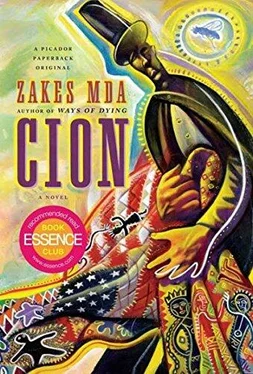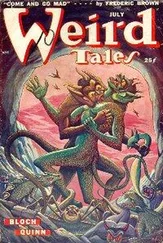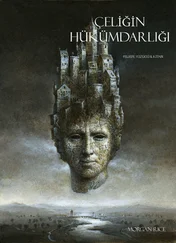
The house has a wrap-around porch. Like all the houses here it is built of timber, painted white. Peeling in places. But from the ground to the porch it is built of brown bricks. The porch is quite high, which makes it look more like an Iberian balcony; you climb a number of steps to get to the front door. Under the porch is the brick part of the building with a door and small basement-type windows. A rusty brown GMC pickup is parked in the shade under the balcony.
A man is sitting on a white swing in the porch. He is looking fixedly at some spot in the garden. His lips are smiling. But none of that smile has crept to his eyes. They are deep-set and sorrowful. He is quite big, with a gigantic handlebar mustache that is gray with streaks of black. His skin is golden brown and his thinning silver hair is tied in a humble ponytail. He is in faded blue jeans and a T-shirt that used to be white. It has a number of small holes and smudges of what looks like mud and ketchup. The jeans are kept in place by a slim belt and a pair of broad suspenders.
When he does not return my greeting my eyes follow his to the garden. Nothing grows here but a solitary shrub decorated with foil strips of different colors. Next to it are a birdfeeder and a spinning wheel with small golden bells hanging on it. And then all over the garden there are gnomes and other figures of varying sizes and colors made of cast plaster. There is a cupid with his bow and arrow aimed to the sky, there are birds and angels in frozen flight on the ground and there are swans and flamingos. The dogs and deer are made of water-stained stone. There is a Jesus in red and white robes, his hand raised in benediction. From the cracks on his flowing garments I can see that he is made of painted wood. There are a number of miniature American flags planted among these figures.
“Mr. Quigley used to be a flower man,” says Obed. “As you can see he don’t care for flowers no more. He grows gnomes.”
Mr. Quigley does not even blink. It is as if he is not there. The wind chimes that are hanging in line on the ceiling of the porch fill the air with notes of different tones and pitches. They blend with a haunting music that leaks out of one of the windows. It would be bluegrass if it were not for the strange-sounding instrument that I cannot place.
We walk through a living room cluttered with motley furniture, including vinyl car seats and a metal table on which there is a sewing machine and bits of fabric and pairs of scissors, into the kitchen. The air is suffused with a delicious aroma of spices and simmering beans. A gloriously obese woman with fluffy three-tone hair — silver, brown and black streaks that frizzle from her round head down to her nape — is slicing tomatoes with an old Ginsu knife.
“Still making relish, Mama,” moans Obed in a voice that has become that of a spoiled little boy. “You’ve been doing it for hours now, haven’t you? Couldn’t pick me up because of the darn relish.”
She turns around to glare at Obed. She moves with difficulty and is out of breath. Her faded navy blue tracksuit is very tight on her body emphasizing tiers of fat on her waist and the stomach that hangs like an apron. It is even bigger than the sciolist’s. Now I am really ashamed of my offhand remark about Kilvert’s fat mothers.
She is not particularly beautiful. Her face is round and bronze and smooth, except for a few expression lines on the brow and at the corners of the mouth. She is obviously going to lash out at her son. But before she can do so she lays her eyes on me, and her face breaks into a puzzled smile.
“I like your costume,” she says. “Who might you be?”
“I am Toloki the Professional Mourner, ma’am.”
“A professional mourner. That’s an original.”
“I thought so too, but now I know better.”
“And what’s with the funny accent?”
“He’s from Africa, Mama,” says Obed helpfully.
“From South Africa,” I correct him. “Remember?”
“From Africa? I’ll be damned!” she says. “You got into the spirit of things well and good for a stranger.”
“She’s Ruth,” says Obed. “She’s my mama. The mama who don’t bring me home because of relish.”
“Grow up, boy,” says Ruth sharply. “If you get yourself drunk out there in Athens all night long you don’t expect your mama to come to your rescue all the darn time. And with them floods, too!”
“That’s another thing, Mama, you didn’t tell me nothing ’bout them floods.”
She decides he is not worth the effort and returns to her tomatoes, and to me.
“How come you don’t look like Africans?” she asks. “You’re yella.”
“Africans come in all colors of humanity, ma’am.”
“I’ll be damned,” she says.
Perhaps it is necessary to account for myself for having what she considers an unusual complexion for an African. I try to explain to her that there are strong possibilities that my ancestry is a Khoikhoi one, which is the case for many Southern Sotho and Nguni people in South Africa. I am aware that I may well be speaking gibberish; this will not make sense at all to either mother or son. At least I have offered an explanation. “I’ll be damned,” is Ruth’s only response.
After running her eyes up and down Obed’s height she declares that he smells and looks like a dead cat and orders him to take a bath and change into clean clothes immediately. He protests, claiming that he is famished and will clean up after he has had a bite to eat. Ruth only has to glare at him and he scurries out. She says I can wait for my friend right there in the kitchen if I like and watch her make the relish.
“Or you wanna sit with Mr. Quigley on the porch?”
“I’ll be fine here, ma’am,” I say as I pull a tall bar stool next to her table.
She is very fast with her fingers. She chops the vegetables, mixing green tomatoes with red bell peppers and jalapeños and mangoes and pickles and brown sugar and vinegar and Hungarian wax peppers. “Them honky peppers,” she says, and goes on to tell me about the art of making great relish. Her tone is conspiratorial, as if she is revealing a secret recipe that will make her millions one day.
“I’m gonna mix that stuff by the ton,” she says. “I’m gonna make something so hot them men gonna say, ‘man, this is hot!’”
Her voice is thick and mellow. She is clearly having a great time making the relish. She promises to lace a few hot dogs with her sauce especially for me and my eyes will water when I eat “them dogs.” After the relish she is going to make green tomato pickle. “Ain’t nothing like green tomato pickle,” she adds.
The music becomes louder. Without the wind chimes, whose sounds do not penetrate the walls unless there are stronger winds, the lone instrument whines in a manner that causes nostalgia in me. Nostalgia for something I do not know. Some place I have never known.
“Don’t you worry your pretty little head about it,” Ruth assures me. “It’s only Orpah and her darn sitar.”

A clean Obed looks quite impressive in his black denim shorts, white and blue sneakers and blue shirt. It is obvious to me that he likes to look good and is particular about what he wears and how it matches with the rest of the outfit. He moans that he is hungry. Ruth sends him out to get some Swiss chard from the garden while she lays the table. I offer to go with him.
The back garden is quite different from the front one. Here we have a vegetable patch: one row each of onions, kale, cabbages, carrots and Swiss chard. Under a plastic sheet that protects them from frost there are tomatoes and peppers. This is Ruth’s garden, Obed says. There was zucchini and lettuce as well, but they are all dead now after the late October frost. Whereas his father, Mr. Quigley that is, cultivates gnomes, Ruth likes to grow vegetables and flowers. Well, they no longer have flowers now because Mr. Quigley has taken all the space, but Ruth still has fond memories of the flowers she used to grow in the front and sometimes talks about them as if they were her dead children. And yet she’s never lost a child to death. Both he and Orpah are still alive, as I can very well see. But Mr. Quigley will never give up his garden. He is attached to it. He spends most of his time tending to it.
Читать дальше













